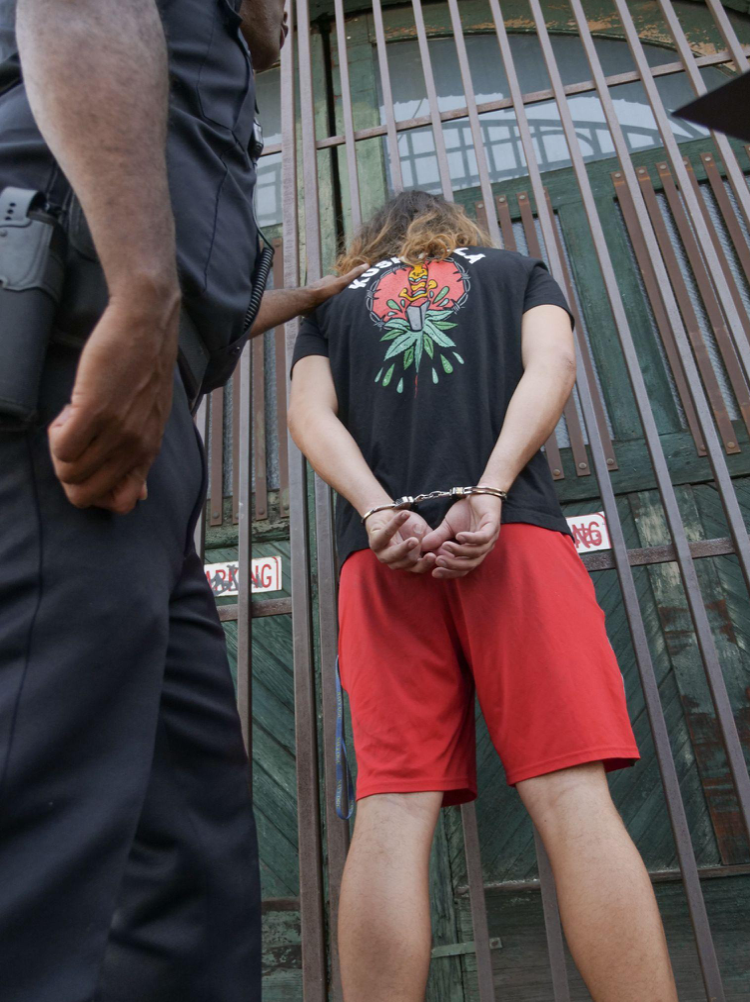The state of New Jersey does allow juveniles to be tried as adults in cases involving serious, violent crimes or when certain circumstances warrant such a decision.
In New Jersey, when an individual under the age of 18 is charged with a crime they are typically tried within the juvenile justice system, which focuses heavily on rehabilitation rather than punishment. However, under certain circumstances, minors can be transferred to adult court where they will face the same penalties as adults. This process is known as “waiver” or “juvenile waiver,” and allows the courts to try individuals under 18 as adults when they are accused of serious crimes.
Types of Crimes That A Juvenile Can Be Tried For As An Adult
When it comes to trying a juvenile as an adult, the nature and severity of the crime are the biggest factors that are taken into account. In the state of New Jersey, there are some specific offenses that can trigger a juvenile waiver to adult court, especially when the individual is older, 15–17 years old.
There are a number of serious crimes that qualify for a juvenile to be tried as an adult, including:
Homicide – Any form of murder or manslaughter, including first- and second-degree murder, tends to be tried in adult court. These are considered among the most serious crimes, if your child has been accused of murder, depending on the circumstances they could be tried as an adult, as a person who commits this type is crime is considered less likely to be successfully rehabilitated in the juvenile system.
Aggravated Assault – If a juvenile is involved in a case where there has been severe bodily harm or the use of weapons, then it may qualify for a waiver, especially if the victim of the assault was a law enforcement officer or other another protected individuals such as a teachers or first responders.
Robbery and Armed Robbery – Sometimes youth make impulsive decisions that are unwise, and theft or robbery can be a common thing that is considered a thrill or challenge. Juveniles who commit violent robberies, particularly those involving weapons, can face adult charges. Armed robbery, in particular, can lead to the adult trial route because of the danger this poses.
Sexual Assault – Any serious sexual offense, such as aggravated sexual assault or sexual assault involving weapons or violence, is also a crime that could result in a juvenile being tried as an adult.
Weapons Offenses – If a juvenile is involved in crimes that include the use of firearms or other deadly weapons, especially in public spaces or schools, they may be waived to adult court.
Drug Trafficking – In cases where teenagers are caught trafficking drugs or possessing large quantities of illegal substances with the intent to distribute, the courts could consider trying the individual as an adult, especially if the individual is seen as part of an organized crime network.

Carjacking – This is another crime that can be done by youth who are caught up in a moment and make a bad decision. Because it is a particularly violent form of theft, often involving weapons or threats of bodily harm, these are frequently moved to adult court due to their violent nature.
What Circumstances Influence An Adult Prosecution
The crime itself is not the only factor in determining whether a juvenile will be tried as an adult. There are several circumstances that influence whether the prosecutor or court will pursue an adult trial for a minor, including;
Age of the Juvenile – In New Jersey, juveniles who are between the ages of 15 and 17 can be waived to adult court. Minors who are under the age of 15 are generally not eligible for adult trials unless they are involved in extremely rare and exceptional circumstances. For older teens, the likelihood of facing adult charges increases.
Prior Criminal History – Not only the age is taken into consideration, but also if the juvenile has a significant criminal record or has committed previous violent offenses. Then the court may consider making a waiver to adult court.
Seriousness of the Offense – The more serious the crime, especially those involving violence, the use of a weapon, death, or the threat of death, the more likely it is that the juvenile will be waived to adult court. Crimes that pose a serious risk to public safety tend to be treated more harshly, even if committed by minors.
Involvement in Gang Activity or Organized Crime – Juveniles who are part of organized crime groups or street gangs may be more likely to face adult charges, especially if their crimes are deemed part of a larger criminal network.
Prosecutor’s Discretion – New Jersey law grants significant discretion to prosecutors when deciding whether to pursue a waiver to try a minor as an adult. If the prosecutor believes the juvenile justice system cannot adequately handle the case or that the juvenile poses a threat to public safety, they may request a waiver to adult court.
Juvenile’s Mental Competence – The mental state and competence of the juvenile can influence the decision. If a juvenile is deemed capable of understanding the consequences of their actions, this might lead to them being tried as an adult when a serious crime has been committed.
Contact An Experienced Criminal Defense Attorney If Your Child is Charged With A Crime
The state of New Jersey does allow juveniles to be tried as adults in cases involving serious, violent crimes or when certain circumstances warrant such a decision. Crimes like homicide, sexual assault, and armed robbery often trigger waivers to adult court, particularly for juveniles aged 15 to 17. If your child has been charged with any sort of crime, it is important to reach out to a criminal defense attorney who has experience with juvenile cases, as they will be able to guide you towards the best outcome to protect the future of your child.


Join the conversation!